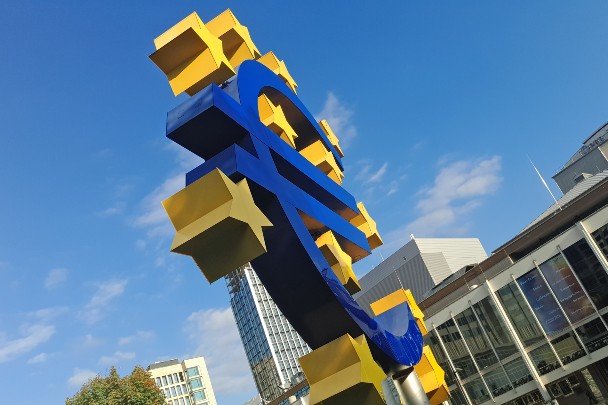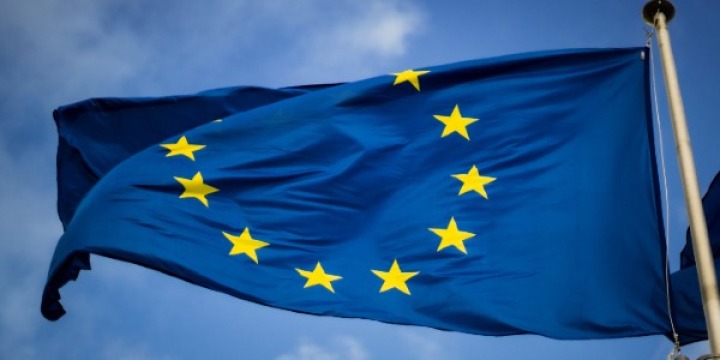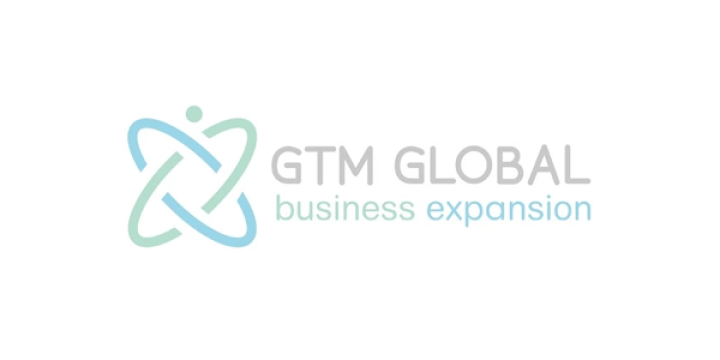July 21, 2022 Industry news
At GS1 UK, there is nothing we like more than seeing businesses grow. To make sure our members have the skills and insights needed to succeed, we collaborate with our growing network of community partners to provide webinars and online events that help businesses identify new opportunities, develop their knowledge and make new professional connections.
The EU is the largest economy in the world and represents the biggest market for all goods and services at a staggering value of €5.33 trillion. To help our members take advantage of the enormous eCommerce opportunities available on the continent, our latest interactive panel with GTM Global brought together a variety of exporting experts to share strategic insights and practical advice for EU expansion.
Read on for a summary of some the key issues discussed, including efficient logistics, the power of online marketplaces, the importance of localisation and more.

Entering the market
First to speak was Trade With Europe director Marcus Broix.
Specialising in frictionless UK-EU cross-border trade, Trade with Europe was founded as a direct result of Brexit to offer unique solutions and additional support to UK businesses selling in Europe.
Marcus likened the current situation to the story of Troy.
“The EU can be seen as a heavily protected fortress and you need a trojan horse to get in” he said. “Once inside you can actually move quite freely and easily, but first you need to find your horse”.
To do this, you need to research the services and opportunities available in the various EU member states. By equipping yourself with this knowledge, you can then select the most beneficial systems for your business in the best prepared countries.
This will help you distil efficient routes to market. You should always aim to trade with as little friction as possible so be sure to look for ways to lower, or even circumvent, trade barriers so your goods can flow freely.
Next Marcus discussed the importance of meeting the legal and tax requirements of each country you sell in. One way of doing this is to establish a legal entity for your business within the EU that provides a place of business and the required administration around it. However, in many cases, you can simply provide various types of EU representations that will allow you to trade from your UK headquarters without having to set up an EU company.
For those just starting out, Marcus also advised working with companies that provide eCommerce services. There are many companies out there who, like Trade With Europe, can offer marketing on a number of European marketplaces, channel online orders from any country and offer sophisticated order fulfilment for a wide range of goods, from food to hazardous materials.

The power of marketplaces
Next to speak was Phil Brooker, head of partnerships at Fruugo. Fruugo is a highly diversified online marketplace that supports e-commerce transactions in 28 languages, 31 currencies and 42 countries across the globe.
Global online marketplaces can make cross-border selling easy. Many will manage all of their sellers translations, foreign exchange and all their marketing as well. According to Phil, 25% of all European eCommerce sales are cross-border and on marketplaces this figure is even higher. Brexit has had little impact on UK-EU marketplace sales, largely thanks to a tax initiative uh that was launched by the UK in January 2021 before being adopted by the rest of the EU six months later.
The new “marketplace tax” means that marketplaces are now deemed suppliers for VAT purposes on certain transactions. This places the responsibility for VAT collection at the point of sale on them, not on sellers.
This makes things easier both for sellers and their supply chains, as well as the authorities policing the system. The new system also introduced the Import One-Stop Shop (IOSS), an optional online portal designed to speed up and simplify the customs and import process for products under €150. If you decide to opt into IOSS, you will need to ensure that an IOSS code is clearly visible on your labels.
While the flow of goods has certainly become easier for lower value products, things get a little more complex of the value exceed €150. If your product falls withing this category, it may be worth seeking additional help from experts or organisations such as Trade With Europe.
Phil concluded by reminding viewers that online marketplaces are still the fastest growing element of eCommerce so will have large budgets to invest in your success as a result. While many brands may want to control wholesale themselves, this comes with a host of issues that require knowledge and expertise to navigate.

Knowing your audience
Johannes Roth, managing director of market research and consultancy organisation Curth & Roth, expanded on Marcus’ “Trojan horse” analogy. He explained that the only reason the people of Troy allowed the horse through their city gates was that it represented something they truly valued.
In terms of exporting to the EU, your Trojan horse needs to be a good product that has a strong appeal to consumers in your target market. If you don’t know who is in the market for your products, targeting the right audience and tempting them away from the competition will be difficult.
This is especially true in Europe where the wants and needs of consumers can differ wildly from country to country. The challenge here is to find a common denominator as developing different campaigns and strategies for each region will require a lot of investment and resource. This requires you to find answers to a number of key questions, such as:
- What are the specific needs your products address?
- Who the people that have these needs?
- Where do they live?
- What is your competitive edge?
It can be hard to come up with concise answers to these questions and, even if you can, doing so isn’t enough to guarantee success. You also need to ensure you are addressing the right audience, at the right time, in the right language, and tone if you are to communicate your USPs successfully.
Johannes recommends that you ask yourself, “what are the last three adverts I remember clearly and why?”. Today’s consumers are constantly bombarded with marketing for countless products, yet some of these items manage to cut through and make it into their homes.
This is not only thanks to good marketing successfully catching their interest, it is also because the product itself appealed to a genuine need at the right moment.
But how can your business do this? According to Johannes, research is the key. To make it in today’s fragmented and highly competitive market, you need to know exactly who your audience is, where they live, what they need and what will grab their attention before localising your approach to meet each of these criteria.
Through market research is the best way to gain this knowledge. Whether you commission research through specialist market research organisations or conduct desk research yourself, the insights it provides will be essential for developing effective marketing strategies.

Getting boots on the ground
Next up was Harry Dhillon, a payroll & international employment specialist from international HR company Lano.
Harry described the many benefits of localising your approach with staff on the ground and explained how UK businesses can take advantage of a variety of flexible employment solutions to support local sales and audience engagement.
Lano and their Employer of Record partners have created a global network of entities that enable businesses to onboard and pay employees in more 150 countries while ensuring 100% compliance with local laws.
An Employer of Record is simply the legal employer of a worker in a certain country. They allow businesses to employ staff overseas without having to establish physical entities on the ground. They also take care of all compliance aspects of employment, including payroll, taxes, statutory benefits, employment contracts and more.
Having all these complex requirements dealt with by specialists who can confidently ensure you stay on the right side of the law provides peace of mind and allows you to focus on your core activities. It also represents and great way of testing the market of a specific country with local staff who speak the language, know the culture and are therefore likely to have a higher success rate than remote sales teams. After testing the waters, you can then invest in setting up a local entity if you wish to commit to that region and want to expand further.
Harry says this is particularly useful post-Brexit now that many UK workers have less freedom of movement. By hiring workers through an Employer of Record, your businesses can grow at scale and speed, expanding your team with local staff who are on fully compliant localized contracts.
Running payroll for overseas staff can also be complicated as employment laws, salary benchmarking and mandatory benefits can differ wildly from country to county. For example, some countries require mandatory severance pay while others demand mandatory bonuses with salaries paid over a 13 or 14 month basis rather than the traditional 12 months.

Funding and support
Estelle Dingley from the Department of International Trade (DIT) spoke of the support and incentives the government can provide to help businesses expand internationally.
All DIT advisors come from the private sector so have a strong understanding of the challenges and rewards associated with growing overseas.
They are stationed in British embassies in around 110 markets across the world to create opportunities for opening new markets and make sure that UK products or services are compliant with local laws.
The DIT also has a team that works specifically on eCommerce who can negotiate specific terms for UK businesses. They can also provide funding to help cover the costs associated with registering a trademark or seeking legal advice.
Estelle concluded by encouraging smaller businesses to take advantage of the government’s Internationalisation Fund which provides match-funded grants of between £1,000 and £9,000 to any eligible business. These grants can be used to support market research, translation services, international social media, SEO, independent market visits, consultancy and much more. To secure a grant, businesses need to fund a proportion of the costs themselves.
This will vary according to the nature of your business and where it is based but is typically 40 or 50% of the total cost.



